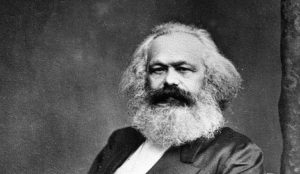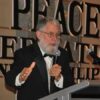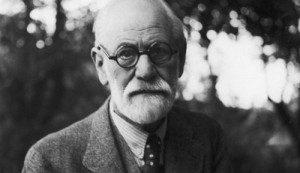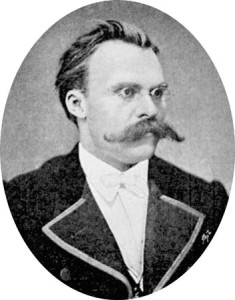Masters of Suspicion, Truth, and the Way Forward
TRANSCEND MEMBERS, 16 Jun 2025
Glen T. Martin, Ph.D. – TRANSCEND Media Service
The “modernity” that emerged in the 20th century resulted in great measure from the immense skepticism of three key “masters of suspicion”—Karl Marx, Sigmund Freud, and Friedrich Nietzsche. Marx revealed that under the dominant slogans of capitalist society and its political structures—such as “free trade,” “creative innovation,” and the “right of private property”— there were hidden relationships of exploitation, domination, alienation, and deprivation. The dominant rhetoric of society covered up its hidden cruelties and injustices.

CIRCA 1865: Karl Marx (1818-1883), philosopher and German politician.
(Photo by Roger Viollet Collection/Getty Images)
Similarly, the self-assured Victorian morality of the 19th century was further assaulted by Sigmund Freud’s insight that the morally upright “ego-self” was in truth a construct functioning to repress and sublimate primal unconscious desires associated with lust, rape, incest, and murder. Like the superficial self-justifications of capitalist politics and economics, the human ego functions to cover up something irrational, seemingly immoral, and psychologically covered up and buried from dominant forms of consciousness. The overt self-justifications of the dominant society were called into question by Marx and the conscious self, with its adherence to formal moral principles, was under assault by Freud and the emergence of the new depth psychologies.
As if this dual assault on the complacent surfaces of life were not enough, the powerful thought of Friedrich Nietzsche challenged the entire traditional framework of bourgeois society—”God is dead and we have killed him”! The theology and mythology of Christianity, which had dominated Europe for nearly two millennia, was falling apart through the revelations of modern science together the emergent critical self-consciousness of the human mind. Immanual Kant in the 18th century had already demonstrated the limitations of the human mind when attempting to discern the meaning of life and the ground of Being through the theology of an omnipotent creator-God.
Nietzsche drove home the point: if ultimate reality is “unknowable,” as Kant maintained, then our ideas about it become irrelevant and useless. Nihilism. There is no truth, only cultural and personal self-deceptions upon further self-deceptions, “caves behind caves.” Meaning and truth face their ultimate crisis. With the old moral God gone, is it true that now “everything is permitted”?
These three masters of suspicion peeled away our self-assurance, and, indeed, any seeming foundation at all. “Modernity,” in its 20th century manifestations, was being born in a chaos of conflicting voices and perspectives. What hope does humanity have for a credible future when such conceptual, personal, and social chaos reigns? How are we to move forward? Which way is forward? There is no way to tell. Without truth, up appears down and down is up. We hear of the climate crisis and the crises of weapons of mass destruction. But how do we address such pending disasters?
Without truth we remain paralyzed at the gate, unable to choose a direction in which to move. Is it enough to withdraw into a small private world of self-satisfactions and petty pleasures? Don’t we feel the human need to consider a credible future for the entire planet and its creatures? On what faith, by what hope, might such a future come from? In Mortality and Morality (1996), philosopher Hans Jonas argues that “responsibility” entered the world with us, with the emergence of human freedom. In the face of these threats to human existence, he declares, we face “an immanent commandment—there ought to be human beings in the future.” Is this a “truth” on whose basis we can act?
Today, everyone speaks of “fake news.” In the background there is the dim awareness that news is always presented within an interpretative framework, often unspoken and unacknowledged. If everything is interpretation, then your fake news may be distorted differently from my fake news, but ultimately it would appear to all be fake news. My truth that I want to express is, for my adversary, “propaganda,” and his news is likewise for me, “propaganda.” How does humanity arrive at some kind of mutual understanding and agreement?
This conflict is not only among persons, it is between political parties, organizations, religions, corporations, and nations. Thinkers like Ken Wilber in A Post-Truth World (2017 updated 2024) declare that ours is the age of “no truth.” We are post-truth, and until we see a way past this paralyzing impasse, we will never be able to move forward to a different and better world, never be able to fulfill the imperative that “there ought to be human beings in the future.”
Wilber’s vision of the future comes from evolution. We can discern an evolution in all four of the quadrants of our human reality that he has outlined in previous books: psychological evolution, scientifically documented physical evolution, cultural evolution, and structural-systemic evolution. In each of these areas we discern an evolutionary development that we can project into the future. We can discern where we need to be going and act accordingly. We can find our truth in these patterns and come to understand that a rediscovery of truth will come from evolutionary growth beyond our present condition.
Perhaps so, but if our dominant society is paralyzed by the “no-truth” poison, how are we to recognize the “evolutionary” perspective as itself containing truth. As well and good as Wilber’s insight may be, I want to suggest that there is another dimension to the “no truth” crisis that can bring us to new levels of insight and realization. Kant showed us the limits of human knowledge, and said this would “make room for faith.” But where are we going with this? Faith in what? In the unknown? Nietzsche, as we have seen, took this as a step on the road to nihilism, to our present loss of meaning and value. Does faith in the unknown really have any meaning?
Perhaps we have been looking in the wrong place, starting with wrong assumptions, and therefore ending up in wrong conclusions. We have evolved from the unconsciousness of nature and the other animals (the prehuman) into ever more self-aware forms of consciousness. That is evident from these very “masters of suspicion” that we looked at above. Their very suspicion heralds a higher, more critical, more self-aware, level of consciousness. Nature itself has manifested this process of “transcendence,” Jonas affirms, the autonomy of living things increases over evolutionary history to result in a new level of transcendence—human freedom and responsibility.
In this intensified consciousness, we experience an immense human freedom (as Jean-Paul Sartre, for example, pointed out in Being and Nothingness, 1943). This freedom includes the freedom to see that all statements necessarily include an interpretive dimension and therefore, at the level of discourse and propositions, it may be that, in a certain sense, “there is no truth.” But what has happened with this evolutionary development? The cosmos has not produced a being who can easily settle on this or that truth, but a being who can challenge any claim to truth from a higher, critical level.
Drawing on Kant, then on Hegel’s evolutionary and dialectical additions to Kant, and finally on the successes of contemporary cosmology, professor Errol E. Harris, in books like The Restitution of Metaphysics (2000), concludes that the principle of evolutionary upsurge, the principle of transcendence that we see throughout nature, has come to self-consciousness in us. Hence, our freedom to challenge any truth is because of an exalted gift inherent in our consciousness, a gift that we call “freedom,” the capacity for endless self-transcendence.
If we embody the “nisus” or principle of transcendence found everywhere in nature then we can view the above “masters of suspicion” in a new light. They were breaking down our old mythologies and assumptions because they each focused the principle of transcendence in a different direction. The question now is what are we going to do with this capacity? Are we going to let it paralyze us within a miasma of “no-truth” conclusions or are we going to explore possible directions in which transcendence might move to address our most fundamental (and potentially suicidal) problems? Perhaps nature expects this of us? Jonas writes: “With the appearance of man, transcendence awakened to itself, and henceforth accompanies his doings with the bated breath of suspense, hoping and beckoning, rejoicing and grieving, approving and frowning” (ibid.).
Do we have a role in the Cosmos? Are we called to discover some purpose for the freedom that has been gifted to us? This transcendence clearly allows us to be aware of existence itself—both our own and that of the Cosmos. Philosopher William Barrett, in The Illusion of Technique (1979), declares that, “the existence of the universe itself is the ultimate actuality with which thinking has to be engaged. That the world is, that there is anything at all rather than nothing—this is the supreme miracle and mystery.” Our innate principle of transcendence, our freedom (that has given us the problem of truth discussed above), allows us to encounter “the supreme miracle and mystery.” Transcendence, can transcend the no-truth world to discover what? Not another truth on the level of previous claims and interpretations.
Rather, we encounter the “ontological shock” of moving to a deeper level of existence. As Jonas puts it in The Imperative of Responsibility (1984), “this innate sufficiency of human nature, which we must posit for any creative steering of destiny, and which is nothing other than the sufficiency (albeit fallible) for truth, valuation, and freedom, is a thing unique and stupendous to behold in the stream of becoming.” We encounter the absolute mystery of existence, the shock of self-awareness in the face of the ultimate question “why is there something rather than nothing?” In his 1929 “Lecture on Ethics,” Ludwig Wittgenstein said that this shock is not even a question, but rather simply “wonder that the world exists.” This wonder was Wittgenstein’s first and foremost example ethical insight.
In her Political Theology of the Earth (2018), professor Catherine Keller concludes by alluding to the “apophatic” sources of a theology of the Earth. Apophatic here means beyond language, beyond the logos of rational discourse. It is the dimension that Jonas and Wittgenstein are pointing to in the above paragraph. She quotes the 14th century mystic Nicolas of Cusa to the effect that “what is ‘sought in the different rites by different names’ remains ‘unknown and ineffable to all’.” Human beings can unite in a “common good” that is not grounded in discursive truths or simple propositions. Our common human situation is that we embody the principle of transcendence that is immanent within all existence and that binds all persons together in their common humanity.
In The Rhythm of Being (2010), philosopher Raimon Panikkar remarks that when we ask the question “Why is there something rather than nothing,” we are assuming that our power to ask why stands above any ontic ground of the question itself.” But “we ask such questions because we have not reached the ultimate. Questions are always penultimate. The ultimate is that which raises no question.” We need to encounter the silence, the “emptiness” that makes all questions possible. Our capacity for transcendence, for freedom, is what makes possible a direct experience of the fullness-emptiness that is prior to both being and discourse.
Panikkar calls this “the silence of the Buddha.” “When both the subject and the object are illumined by a light that comes neither from me nor from the object, then it produces an ‘understanding’ that is more than sense or rational experience; it creates a union between subject and object that is of an order other than as sensuous touch or a rational contact.” Through our capacity to transcend even sensuous experience and rational dialogue, through our freedom, we encounter the fullness-emptiness that forms the groundless-ground of all becoming. We transcend the “no-truth” impasse and encounter the destiny of our common humanity.
Here lies the way forward toward a world of peace, prosperity, and sustainability. The philosopher Emmanuel Levinas (1969) declares that a human being “contains more than it is possible to contain.” He speaks to our point. Our sheer existence contains the entire secret of the Cosmos, and it is this that our questions cannot begin to address with any hope of success. To have direct awareness of “the supreme miracle and mystery,” and to live from that point beyond language and discourse allows ourselves and our common humanity to envision a truly transformed future— and even one united under a common document such as the Constitution for the Federation of Earth. No “truths” are necessary for this union, simply a common recognition of the depths of the absolute mystery in which we all participate.
The masters of suspicion that broke open our earlier naïve metaphysics have led us beyond the “truth or no-truth” dilemma to a place that unites us all in love and solidarity with all of life. The masters of suspicion have challenged our beliefs. Marx challenged our beliefs that we are innocent and justified in our constant grubbing to increase our wealth and the size of our “portfolios.” Freud challenged our beliefs that our ego, with its sense of right and wrong, of what is proper and improper, is based on some reality other than repression and self-delusions. Nietzsche challenged our facile acceptance of this or that religious doctrine bequeathed to us by family, culture, or tradition with its bizarre beliefs about an omnipotent, all-good God who allows unmitigated suffering and terror for his creatures everywhere to the far corners of this Earth.
As a result of this, William Barrett observes, “nihilism has become the matter-of-fact state of mind of our period.” Nihilism is the assumption that there is no truth. Technique, he says, dominates everything, a will to power embodied in technology and used to exploit nature and people. There appears no meaning or purpose to this obsession: just money, profit, facile pleasures, ever more power, and ever more profit. The nihilist finds no meaning and purpose, only eternal repetition of ever more technique, ever more mindless power for its own sake—even while we see the climate collapsing all around us and nuclear war forever hovering in the wings.
Nihilism assumes there is no truth—no meaning and purpose. The masters of suspicion have exploded all such beliefs. But, and here’s the rub: the core and ecstasy of life were never about beliefs in the first place. When Kant considered our place in nature in his Critique of Judgment, Barrett says, he discovered that “we are at home in a mystery which suggests some meaning of which we are a part, though we cannot know it in any precise conceptual way.” But it is more than this, for “whatever dominance we have come to have over things, we have in the end to bow before the mystery of Being.” If we live with openness to this absolute mystery, then we are animated by a fullness of life that supersedes any conceptual meaning and purpose, that is, any beliefs. Arguments about the truth of this or that belief become irrelevant.
This is not at all to denigrate reason, which has extremely important functions in human life. Reason, which works within the temporal flow to envision and realize possibilities, is the other great gift of the Cosmos to the human microcosm. Reason evidences another function of our capacity for transcendence, and the whole question of truth flows forth again in ways that powerfully transcend nihilism. I have outlined the significance of this incredible gift in Human Dignity and World Order (2024) and elsewhere, and there is no space here to articulate this other wonderful dimension of our humanity. Rather, here we are recognizing a dimension not available to reason.
We become open to the “silence of the Buddha,” a fullness/emptiness that at the core of “ordinary mind” that is prior to all doctrines and beliefs. To exist at all, simply to be as part of this astonishing thing called existence, experientially confirms our connection with the whole and our amazing status as self-aware creatures of transcendence. A new love for life and the groundless mystery (that we personify and embody) flows forth. This simplicity itself, without beliefs, doctrines, or dogmas, allows an unsayable, apophatic religious “truth” to flood into life.
We become free to move into a future on a higher level of existence, both beyond wars and beyond climate collapse, than any previous arrangement. In the words of Zen Buddhist philosopher Masao Abe, “The age of the nation-state must end…. We must awaken to original Self which has broken through the ego….We must build a cooperative society of mankind within the universe.” We overcome nihilism through this awakening. We embrace the world and the human project inseparable from that world. Ratification of the Earth Constitution becomes the next logical step. The principle of transcendence in us is also the principle of the whole, of wholeness of humanity and our planetary biosystem under an Earth Constitution.
Wilber says we need to evolve farther, but he knows very well that there is no place we need to go. We simply stay where we are in the apophatic silence of the present moment, in its sheer existence. The important critical insights of our “masters of suspicion” have no purchase here. The principle of transcendence inherent in our common humanity opens to the unsayable fullness-emptiness that is everywhere and nowhere. We transcend even language and its discourse. Freedom is not only the capacity to act with purpose. It is also the capacity to leave things be, as Martin Heidegger declared in his late writings. “Restoration in the wilderness, here and now.” Humanity unites under an Earth Constitution premised on our true dignity and grounded in our astonishing capacity for self-transcendence.
______________________________________
 Dr. Glen T. Martin:
Dr. Glen T. Martin:
– Member, TRANSCEND Network for Peace Development Environment
– Professor of Philosophy Emeritus
– Founder/Chairperson Emeritus, Program in Peace Studies, Radford University
– President, World Constitution and Parliament Association (WCPA);
– President, Earth Constitution Institute (ECI)
– Author of twelve books and hundreds of articles concerning global issues, human spirituality, and democratic world government; a recipient of many peace awards.
www.earthconstitution.world – Email: gmartin@radford.edu
Tags: Friedrich Nietzsche, Karl Marx, Modernity, Sigmund Freud
This article originally appeared on Transcend Media Service (TMS) on 16 Jun 2025.
Anticopyright: Editorials and articles originated on TMS may be freely reprinted, disseminated, translated and used as background material, provided an acknowledgement and link to the source, TMS: Masters of Suspicion, Truth, and the Way Forward, is included. Thank you.
If you enjoyed this article, please donate to TMS to join the growing list of TMS Supporters.

This work is licensed under a CC BY-NC 4.0 License.
Join the discussion!
We welcome debate and dissent, but personal — ad hominem — attacks (on authors, other users or any individual), abuse and defamatory language will not be tolerated. Nor will we tolerate attempts to deliberately disrupt discussions. We aim to maintain an inviting space to focus on intelligent interactions and debates.

